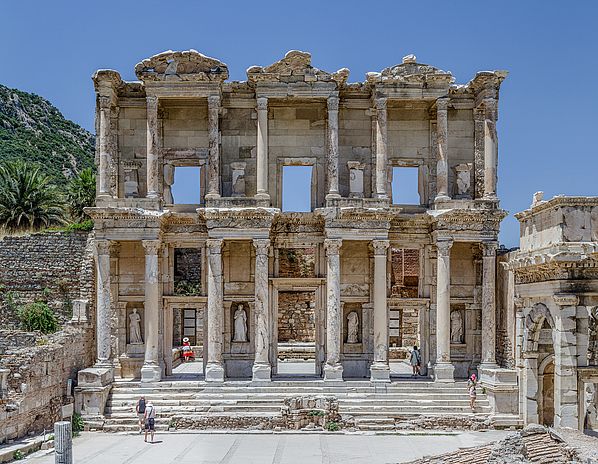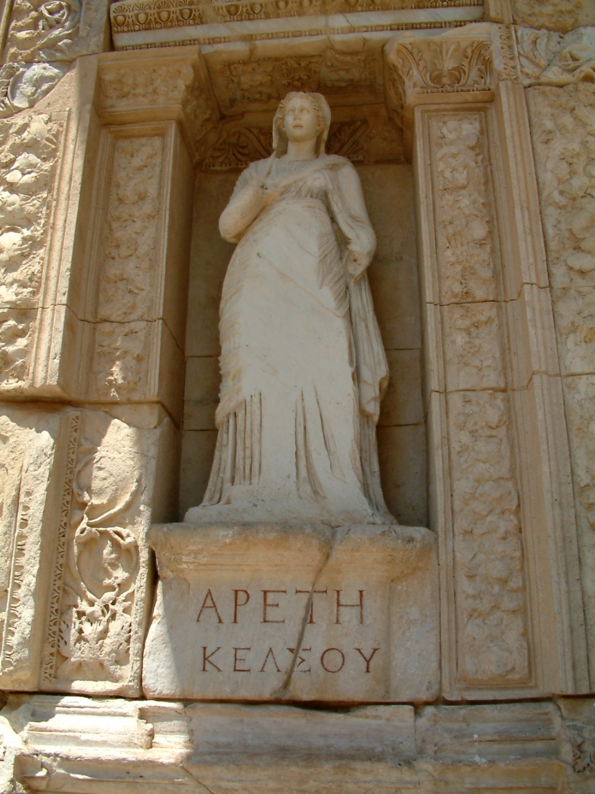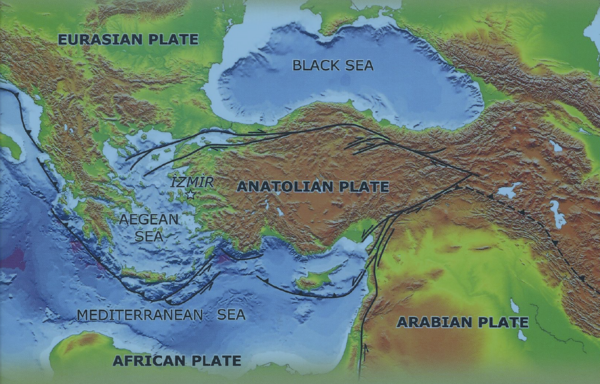Excursion
For an upto date guide for visiting EPHESUS click here.
Excursion: Ancient City of Ephesus
Ephesus
The city is listed in the UNESCO world heritage list since 2015. Ephesus comprises successive Hellenistic and Roman settlements founded on new locations, which followed the coastline as it retreated westward. Excavations have revealed grand monuments of the Roman Imperial period including the Library of Celsus and the Great Theatre. Little remains of the famous Temple of Artemis, one of the “Seven Wonders of the World,” which drew pilgrims from all around the Mediterranean. Since the 5th century, the House of the Virgin Mary, a domed cruciform chapel seven kilometres from Ephesus, became a major place of Christian pilgrimage. The Ancient City of Ephesus is an outstanding example of a Roman port city, with sea channel and harbour basin (Ministry of Culture and Tourism).
The well known building in the photo is the Library of Celsus which became the symbol of the city. It was built in memory of Tiberius Julius Celsus Polemaeanus, an Ancient Greek who served as governor of Roman Asia (105–107) in the Roman Empire. Celsus paid for the construction of the library with his own personal wealth,and is buried in a sarcophagus beneath it. It is reported that the library held nearly 12.000 scrolls.
Click here for more detailed information about Ephesus.

Arete (personification of virtue)
The statues in the niches of the columns of Celsus Library are the copies of the originals. The statues symbolize wisdom (Sophia), knowledge (Episteme), intelligence (Ennoia) and virtue (Arete). The photo shows Arete (APETH) which symbolizes the "virtue".
In ancient Greece, virtue meant something of competence. It was called virtuous man who had an Arete, that is, a competent person, who did the work that was suitable for him, who performed his unique function. For example; the blade's Arete is a good cut because the blade is made for this purpose. In the case of human, virtue is defined as follows: “Human activity is not movement, growth, reproduction, because other animal species do so. It is Socrates who uses the word virtue for the activities of human beings which means to fulfill the unique function of each human being in the best way. In this context, according to Socrates, virtue is the realization of actions that is appropriate and original to one's own (Özgüney, T.).

